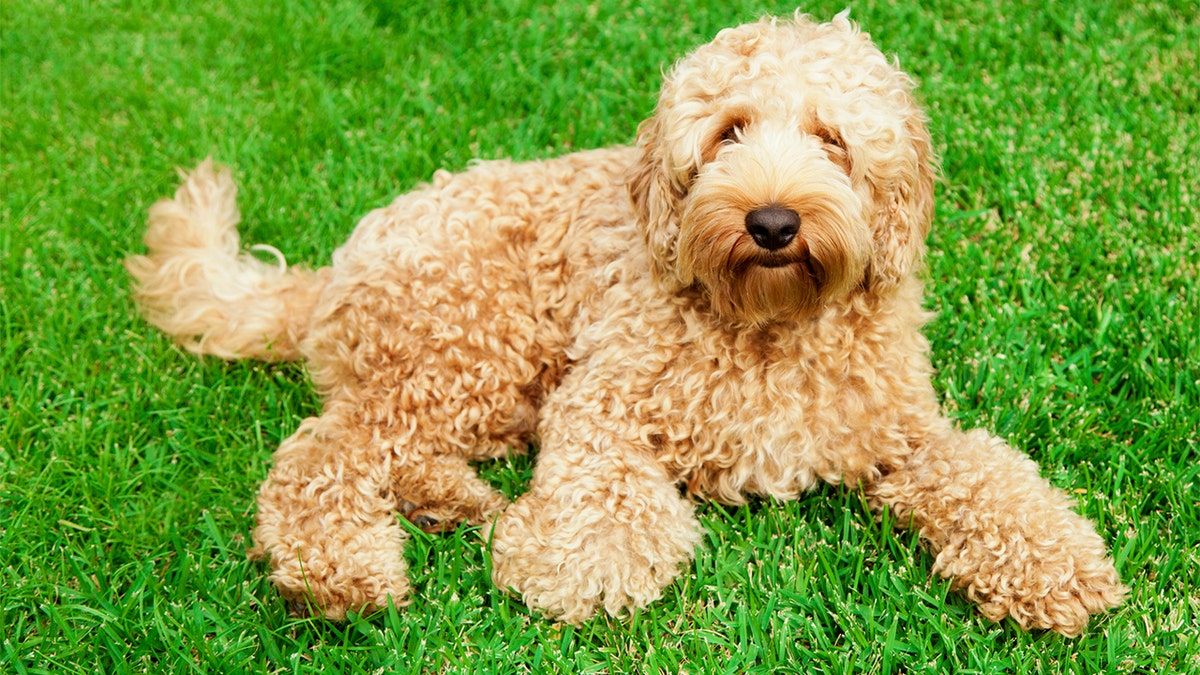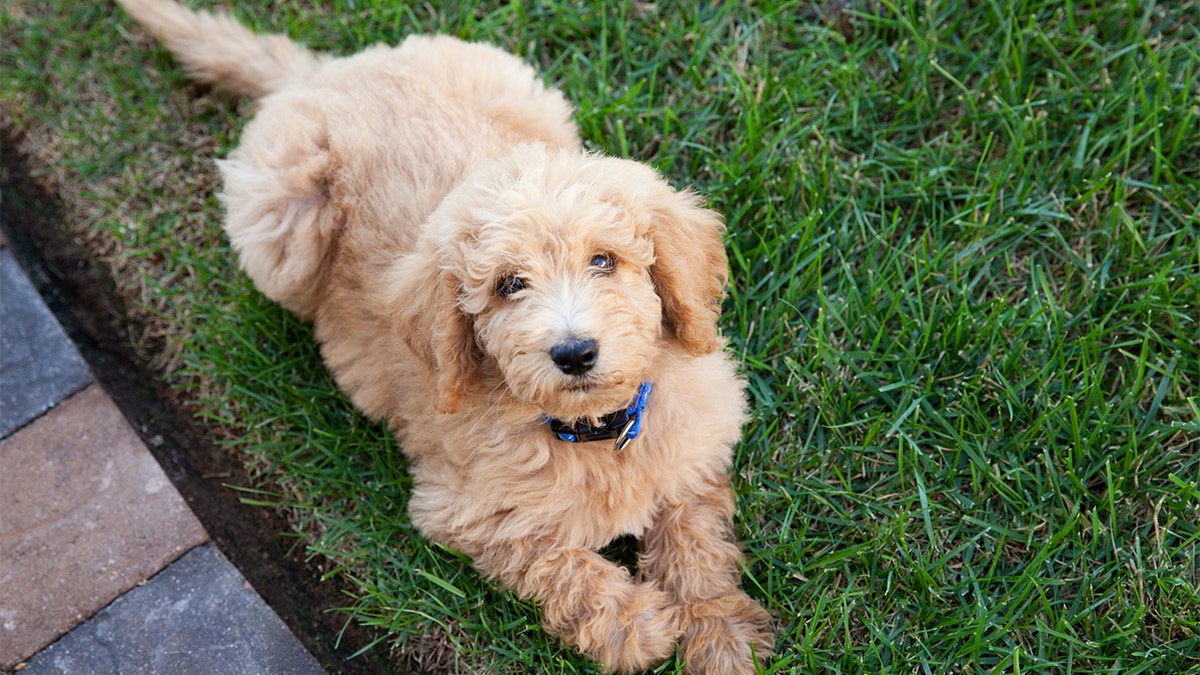Fox News Flash top headlines for Sept. 26
Fox News Flash top headlines for Sept. 26 are here. Check out what's clicking on Foxnews.com
The creator of the labradoodle said last week that he unleashed “a Frankenstein monster," calling the popular pup his "life's regret."
Wally Conron, 90, was working as a breeder for Guide Dogs Victoria in Australia when he successfully mixed a Labrador retriever and a poodle in 1989, he told the Australian Broadcasting Corporation's "Sum of All Parts" podcast last week.
"I opened a Pandora's Box and released a Frankenstein monster," he said.
His goal was to provide a blind woman in Hawaii with a hypoallergenic guide dog.

Cute golden labradoodle laying in lush green grass. (iStock)
Over three years, Conron tried breeding poodles -- which don't shed -- to no avail. He eventually mixed a Labrador and a poodle, and the result was a trio of puppies. One went to the woman in Hawaii.
After a public relations blitz to find homes for the two remaining puppies, the breed became popular in Australia and abroad, leading to a slew of crossbreeding.
"I realized what I had done within a matter of days," he said. "I went to our big boss at the time and I said to him, 'Look, I've created a monster. We need to do something about it to control it.'"
He told ABC his "big regret" was that "unethical, ruthless people" bred the dogs without thinking of the health of their offspring.
The majority of labradoodles are "either crazy or have a hereditary problem," Conron said, adding that healthy ones are "few and far in between."
"Designer dogs" can fetch thousands of dollars, resulting in some breeders who care more about making money than safeguarding the health of their animals.

Adorable labradoodle puppy laying in the grass (iStock)
CLICK HERE TO GET THE FOX NEWS APP
While at Guide Dogs Victoria, Conron bred 31 labradoodles, with the majority going on to become guide dogs.
As designer breeds continue to become widespread, so are their health issues. Labradoodles often suffer from degenerative hip and elbow diseases, epilepsy and other inherited conditions, according to the Australian Labradoodle Association of America.









































